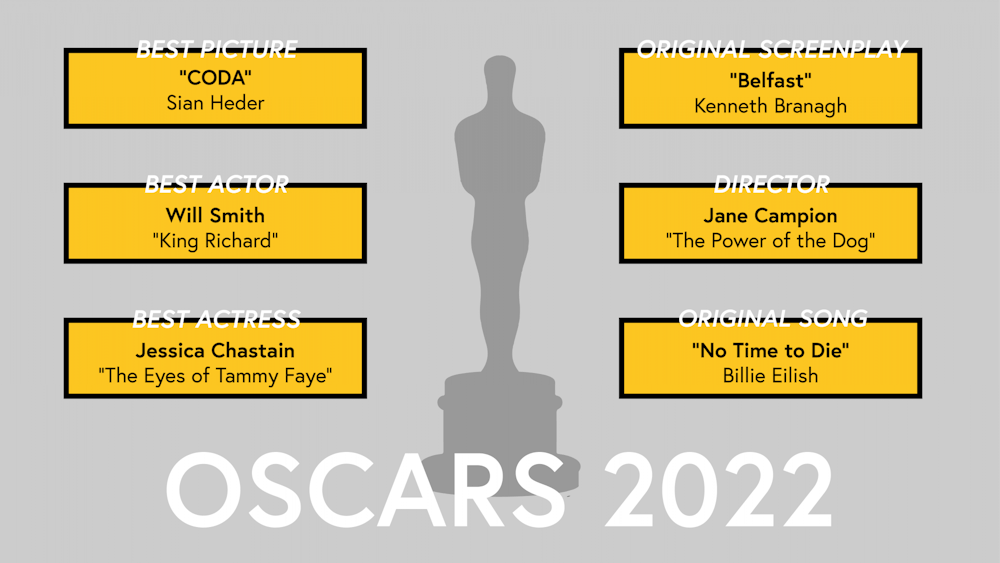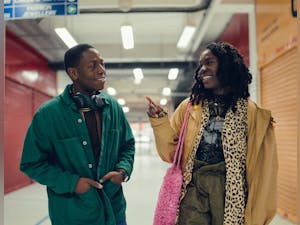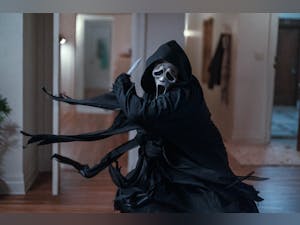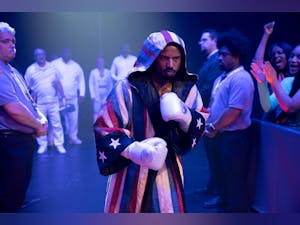From: Silver Screen
REVIEW: The good, the bad and the ugly of the 94th Academy Awards

The Oscars felt more like a fever dream than an awards show meant to celebrate achievements in film from around the world. Twitter flooded with comments and viewers were left reeling from a dramatic altercation between Chris Rock and Will Smith, which drew the focus away from the strides made in representation this year. With that in mind, here’s a recap of all the good, bad and ugly moments from this year's Oscars ceremony.
The Good:
Troy Kotsur’s Best Supporting Actor win
Troy Kotsur won Best Supporting Actor for his role of Frank Rossi in “CODA,” making him the first deaf man to win an acting Oscar and the second deaf person ever to win an Academy Award. Everything about his win was beautiful, from presenter and fellow Oscar winner Youn Yuh-jung’s overjoyed reaction, to the crowd’s signing of applause as Kotsur made his way to the stage, to his powerful acceptance speech. This touching moment of visibility for the deaf and disabled community and Kotsur was brilliant and was later reinforced by the film’s Best Picture win.
A pair of Best Actress acceptance speeches
Ariana DeBose won Best Supporting Actress for her role of Anita in “West Side Story.” She is the first openly queer woman of color to win the award and the second Latina actress to win an Oscar. Her victory marks the first time that two women have won Academy Awards for the same role, the first being Rita Moreno in 1961. DeBose’s speech was a tribute to how art creates a place for people living in the “gray spaces.'' Later, Jessica Chastain won Best Actress for her role in “The Eyes of Tammy Faye.” She took the opportunity to highlight suicide prevention, especially in the LGBTQ+ community. She managed to make the conversation applicable to everyone by reminding us that we all want to live in a world where we are loved and free from fears of violence, a particularly resonant message as war threatens Europe.
A touching tribute to Ukraine
While introducing Best Original Song, Mila Kunis, who was born in Ukraine and, along with her husband, have raised over $30 million for Ukrainian refugees, acknowledged the conflict in her home country. She praised the resilience of Ukrainians before introducing Reba McEntire, who sang “Somehow You Do” from the film “Four Good Days.” A moment of silence and a displayed message acknowledging the struggle in Ukraine and urging support for the country followed the performance. This gesture was a surprisingly direct call to action from an institution that hasn’t been known for its ability to enact change.
The Bad:
Fan favorite selections
The inclusion of “fan favorite” winners was a misguided attempt to boost the Oscars relevancy and engage a broader audience. The Academy released voting polls on Twitter for the public to give feedback on the best mainstream films of the year, including the Oscars fan favorite and Oscars cheer moment categories. Rather than acting as a true reflection of our favorite pop culture hits, the polls resulted in some absolutely bewildering top picks. This segment was meant to make up for the fact that the Oscars rarely acknowledge box office hits, but the decision ultimately gave the Oscars the feel of the Teen Choice Awards rather than a celebration of cinematic accomplishments. More than anything, the move highlighted the power of online fandoms to promote their favorite artists rather than showcasing the best mainstream films.
Misguided attempts at shortening the show
The decision to pre-record eight awards before the ceremony and splice them into the main show to save time was arguably the worst decision of the night. The Academy inadvertently deemed these awards less important than others and therefore less worthy of screen time while peppering in a variety of cringe worthy jokes and scripted anniversary reunions. Editing, score, makeup and hairstyling, sound and production design are all vital to the filmmaking process and can single-handedly transform a mediocre film into a great one. And rather than addressing the limited availability of short films, the Academy decided to pre-record these awards as well, notably giving Riz Ahmed less than a minute to accept the award for Live Action Short Film. Each of these awards are pivotal to the world of cinema, and it is disgraceful for the Academy to relegate them in favor of boosting their ratings.
A poor showing for Netflix
In the run up to the awards, Netflix’s “The Power of the Dog” led the competition with 12 nominations, but nearly left the show empty handed. The film’s saving grace was director Jane Campion’s win for Best Director, the film’s sole award. Campion is the third woman and the second consecutive woman to win the award following Chloé Zhao’s win last year. “The Power of the Dog” is also the second film in Oscars history to only win the award for Best Director, the first being “The Graduate” in 1968. This sole win also highlighted a disappointing year for Netflix, whose films only secured one award, despite 27 nominations. Netflix also lost out on having the first streaming-exclusive Best Picture winner despite earning the first streaming-exclusive nomination back in 2014 with “The Square.”
The Ugly:
Will Smith’s viral slap
Despite the Academy’s efforts to make the show more popular, the viral moment of the night arrived unscripted when Will Smith walked on stage and slapped Chris Rock after Rock made an insensitive joke about wife Jada Pinkett Smith. Smith returned to his seat and yelled at Rock to “keep my wife’s name out of your f------ mouth” twice. He would then go on to win Best Actor for his performance as Richard Williams in “King Richard,” giving a rambling acceptance speech that attempted to explain his actions and apologize to the Academy and his fellow nominees. The altercation overshadowed the rest of the evening that was meant to celebrate excellence in film, not personal quarrels.
Vague sexual harassment of male actors on stage
In a bewildering comedic moment, host Regina Hall went onstage and called forward a few male actors in the audience with the intent of performing a “COVID-19 test” on them backstage that would involve explicit sexual acts. Hall then felt up the next presenters, Josh Brolin and Jason Momoa, playing the action for laughs. The inclusion of this gag was staggering, especially given Hollywood’s troubled history with sexual abuse and harassment. It was a shameful and cringey decision for the producers to keep this moment in the broadcast instead of giving more time to the shortened categories.
edubose@theeagleonline.com and life@theeagleonline.com




